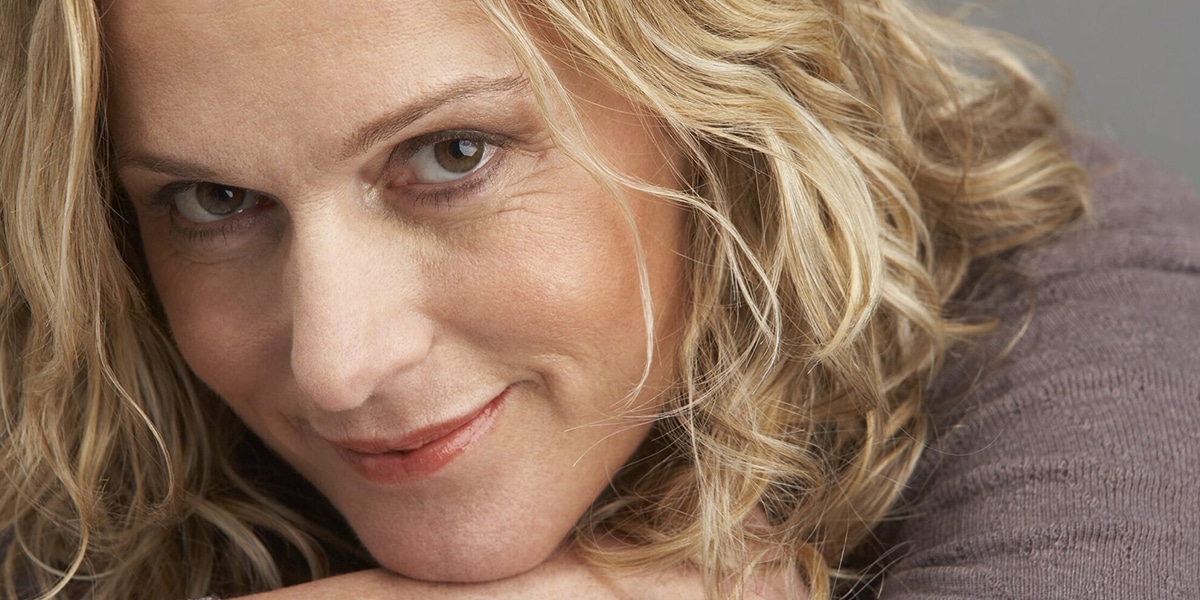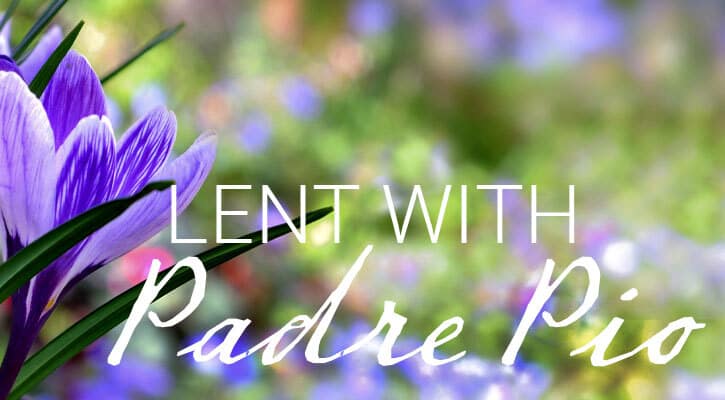These five simple questions lead to honest prayer.
Growing older seems effortless, I discover, as I suddenly realize that my birthday is only weeks away. I have done nothing to hurry the hands of the clock. I have had no say in how one day melts into the next, or how months melt into one year, and then another.
Growing older, it seems, requires little more than showing up. But the inner work, the intentional work of maturing, challenges me. I am stretched in this process of aging well in attitude and in spirit. Sometimes I must let go of the old and embrace the new. Sometimes I must bring the old and the new into honest conversation—old presumptions and new expectations, taken-for-granted abilities and encroaching limitations, fading hopes and beckoning horizons.
The Work of Maturing
This inner work of maturing into midlife and beyond, I am learning, requires skill and grace as I navigate what is unknown and sometimes dreaded. Truth be told, this work of maturing requires that I cherish, at the risk of heartbreak, what fades before me. It challenges me to trust that which is unseen, yet promises to hold me up when I think I will fall. On some days, I admit, this work of maturing feels like a stretch. And it is. And it should be.
This interior work of maturing sometimes invites me into unexpected, deeper conversations with others—on the bigger topics, the painful topics. Sometimes that necessary, deeper conversation is between self and work.
And, if I am paying attention, I will be drawn into sobering and uncomfortable conversations between self and the world in which I live. When I am feeling honest and courageous, I find that this inner work of maturing invites me into deeper conversations with God. We call this meditations and prayer.
I am keenly aware of how easily I can bracket these deeper conversations for a later date. “Maybe when I can get away,” I convince myself, “when I have some uninterrupted time in that idyllic setting, when nothing is nagging for my attention.” Someday, maybe. I am also keenly aware of how skilled I am at fooling myself. Getting away for uninterrupted time to sit with the bigger questions is not going to happen. What I need in my overcommitted and maddeningly distracted life is oxygen for the next breath, and the next, here and now.
So I will share with you five simple questions that give me spiritual oxygen for each day and invite meaningful reflection on my life. You can think of these as the big questions in simple form, big questions that will lead to honest prayer.
What Gives Me Joy? I find that joy is the necessary thing, a reliable indicator of how well I am navigating along life’s uncertain surfaces. I describe joy as an interior stirring of the Holy Spirit when my life, my actions, my ways of being present in the world touch others in a way that blesses them and gives joy to God.
Joy is a preeminent sign of the Holy Spirit at work in my life. In short, joy is vocational. Therefore, I pay keen attention to what gives me joy. In that moment and in my reflection at the end of the day, I strive to name what has given me joy because I know I need to call it forth. Applying myself to the work for which I am gifted, listening intently and lovingly to a friend, making merciful space for a stranger, or engaging in creative activities that benefit others—these are gateways, for me, into the experience of joy. The joy I experience, in fact, is a participation in God’s joy.
When I can notice and name what gives me joy, I can more clearly notice and name my mission as it matures in this stage of my life.
What Robs Me of Joy? If joy is a sure sign of the Holy Spirit at work in me, then I need to pay keen attention to what robs me of it. This is not the same as being inconvenienced. When I feel robbed of joy, I feel a hole in my life, in my heart, where God’s joy and blessing had wanted to be.
What robs me of joy in this season of my life may be what gave me joy in an earlier season: an assignment, perhaps, that is finished but which I have not quite let go. What robs me of joy may be a persistent, stubborn pushback to an invitation to grow in new ways. What robs me of joy may be relationships, activities, or habits that distract me from giving myself wholeheartedly to my mission. Or what robs me of joy may be a pervasive sense of being vocationally, relationally, or existentially lost.
What robs me of joy may be a cold blanket of depression or feeling as though those closest to me do not want to know what I am experiencing or how I feel. Honestly naming what robs me of joy or drains me of life is a first and critical step toward a new vocational clarity, especially when I feel that I am heading into uncharted territory.
The antidote to feeling vocationally lost is not to pray harder. We probably have all prayed at some point: “Dear God, what do you want me to do? Just tell me. Speak plainly.” The answer to such a prayer is always the same: do what gives you joy and that blesses others in some way. God gives us such astonishing freedom.
What Breaks My Heart? When I feel robbed of joy, I feel a hole in my life. A broken heart is different. A broken heart more painfully bespeaks something in my life or in my world that truly is broken, sometimes beyond repair.
What breaks my heart hurls me into the land of death, where dying seems so final, the tomb so thoroughly sealed—the land where what is new cannot be felt or even imagined. Embedded within the question “What breaks my heart?” is the challenge to live a life that is intentional enough, and uncluttered enough, to allow heartbreak to register. And why admit heartbreak? Why would I not fortify against it?

Eventually, heartbreak is the price we pay for loving with costly love. It is not convenient love or love that assures us of love in return. Jesus loved with costly love. And look at the price he paid. He died with a broken heart.
I admit, I easily become numb to the daily newsfeed of unrestrained human violence and human anguish, numb to the massive loss of hope amid the rubble. I also become numb to the beautiful stories of unimaginable courage and resilience in this complex 21st-century world.
Many of us avoid heartbreak by structuring our lives so that which is most human, and therefore most vulnerable, can never find a way into our overstuffed schedules. Frankly, a broken heart is not efficient; it is a drag on personal productivity.
Yet, if I am an apostle of the Lord, I can expect that certain things will break my heart but also spur me to moral action. Certain things will break my heart precisely because they first break the heart of God. The heart sealed against heartbreak, I discover, is a heart sealed against grace. To defend the integrity and power and beauty of my own humanity and that of others, I need to be conscious of, and able to name, what breaks my heart.
What Am I Resisting? As a maturing human being, and even more so as one who is anointed in the Holy Spirit, the very quality of my life depends on my openness to God’s invitations and my responsiveness to them. Vocationally, God’s invitations are no small thing. Nor are they rare or usually for someone else. God’s invitations, I have discovered, will stretch me and challenge me. They will make me go where I had not thought to go and strive for what I assumed was beyond me. Resisting God’s invitations comes so easily. It’s like the instinct for self-preservation, arguing for the status quo, preferring to play it safe and not rock the boat.
I can stubbornly insist on staying on a road that clearly is leading me away from my mission. Or I can be on the right road but only grudgingly inch my way forward with the brakes on. Because, in perfect love, God will never coerce, I can resist opportunities to grow toward my fuller self-in-God. But why would I settle for living with such a lack of freedom?
I can run, I have learned, but ultimately I cannot hide from the One who is passionate about my life, my joy, my fruitfulness, passionate about calling forth the dignity and inherent beauty of my maturing life. In fact, I can exhaust myself in my resistance to grace. But why would I want to resist grace? So, vocationally, I need to be honest with myself about what I am resisting in this stage in life. I need to gently, mercifully expose my resistance to the light and name it.
What Am I Accepting? Accepting anything—not grudgingly but humbly, gratefully—is a mature, courageous act. Accepting the unbidden invitations of a maturing Christian life has everything to do with mission, and what I call missional fruitfulness.
And so, it is important to be clear about what I am now coming to terms with, accepting, and even embracing, although the grace of the upside may be slow to reveal itself. At this later stage in my life, I may finally be accepting that I always have been—and always will be—a good B-plus student, that I will never be as polished or witty or acclaimed as I think I should be.
I may be accepting that opportunities of earlier years are gone, that my physical strength is ebbing, that my mental edge is growing dull, or that my zest for life these days seems a little flat. I may be accepting limitations or personal poverties, which seem inherently unfair: a poverty of health or mobility, a poverty of education or experience, a poverty of connections, friendships, or love.
Or I may be accepting the astonishing reality that I am, in fact, gifted enough right now to accomplish certain good for the few whose lives I will touch in whatever time is left to me. I do not need to read one more book, take one more class, or acquire or perfect any more skills in order to be enough for the assignment. I am good to go, right now, just as I am.
The mere act of accepting my conditions—whether undesired poverties, actual readiness, or even unbidden riches—gives God something to work with. The quality of my life and the way I reflect on it indeed matter as I mature. “Come close and declare; let them take counsel together,” the Lord God urges (Is 45:21). It is good, I discover, and humbling, honest, and spiritually helpful to sit daily in counsel with the Lord God.
This is the same Lord who walks humbly, so that I might learn how to walk humbly, too, with God hidden beside me, and in me, as I walk through my small patch of this 21st century world.








